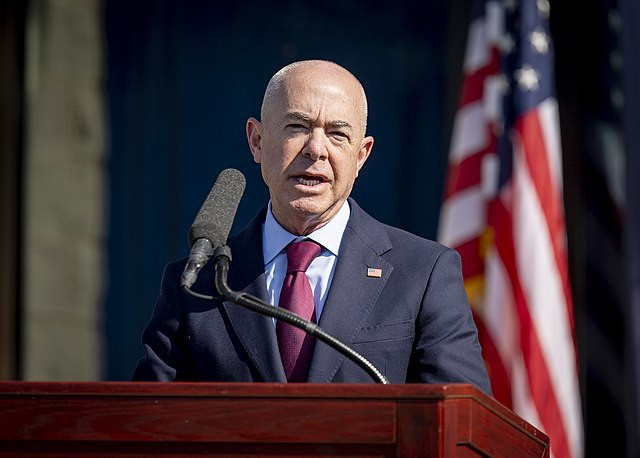The Republican-dominated House of Representatives voted 214-213 to impeach Homeland Security Secretary Alejandro Mayorkas, marking only the second instance in U.S. history where a member of a president's Cabinet has been impeached. The allegations accuse Mayorkas of failing to enforce immigration laws and making false statements to Congress, catalyzing what Republicans describe as an unprecedented crisis at the U.S.-Mexico border.
House Speaker Mike Johnson, leading the charge, stated, "Secretary Mayorkas has willfully and consistently refused to comply with federal immigration laws, fueling the worst border catastrophe in American history." This narrative aligns with the broader Republican strategy to spotlight immigration as a critical issue in the upcoming electoral battles, leveraging the record migrant flows since President Joe Biden's inauguration as a key point of contention.
However, the impeachment's prospects in the Democratic-led Senate appear bleak, with Majority Leader Chuck Schumer indicating that the Senate will proceed with the trial upon return from their recess, as reported by Reuters. Despite this, the likelihood of Mayorkas' removal remains slim, reflecting the complex interplay of political maneuvering and the constitutional threshold for impeachment.
The vote not only highlighted the political rift but also showcased dissent within Republican ranks, with Representatives Ken Buck, Tom McClintock, and Mike Gallagher breaking party lines to vote against the impeachment. Their defiance underscores the nuanced debate over whether Mayorkas' actions constitute the "high crimes and misdemeanors" necessitated by the Constitution for impeachment, or if they merely represent policy disagreements.
The Department of Homeland Security defended Mayorkas, with spokesperson Mia Ehrenberg criticizing the impeachment as a baseless attack on a dedicated public servant.
"Without a shred of evidence or legitimate Constitutional grounds, and despite bipartisan opposition, House Republicans have falsely smeared a dedicated public servant who has spent more than 20 years enforcing our laws and serving our country," Ehrenberg said.
President Biden echoed this sentiment, condemning the House Republicans' move as an act of "unconstitutional partisanship."
"This impeachment already failed once on a bipartisan vote. Instead of staging political stunts like this, Republicans with genuine concerns about the border should want Congress to deliver more border resources and stronger border security," Biden said in a statement Tuesday evening.
Adding to the complexity is the backdrop of fluctuating migrant arrest numbers and the recent Senate defeat of a bipartisan border security bill, which would have marked a significant policy shift. House Republicans, feeling isolated in their quest for stricter border controls, pressed forward with the impeachment, signaling a broader critique of the Biden administration's immigration policies.
Minnesota's congressional delegation's votes mirrored the national partisan divide, with Republicans supporting the impeachment and Democrats opposing it. Representative Tom Emmer encapsulated the Republican stance, emphasizing the GOP's leadership in addressing border security, while Democrat Dean Phillips pointed out the paradox of impeaching Mayorkas without backing comprehensive legislative solutions.
This impeachment saga not only highlights the polarized nature of American politics but also raises questions about the future of immigration policy and the role of executive accountability in an era of heightened partisanship. As the Senate gears up for the trial, the nation watches closely, aware that the outcome will reverberate far beyond the halls of Congress, influencing the political landscape and the lives of countless individuals at the border.






